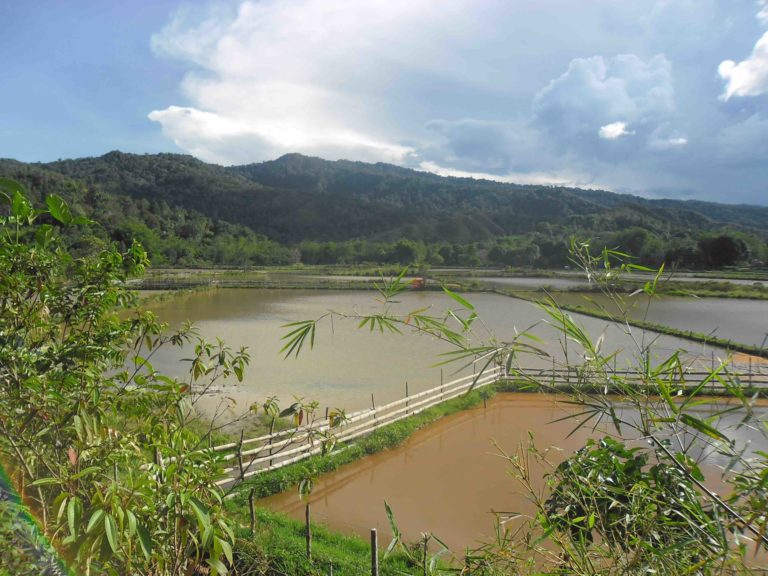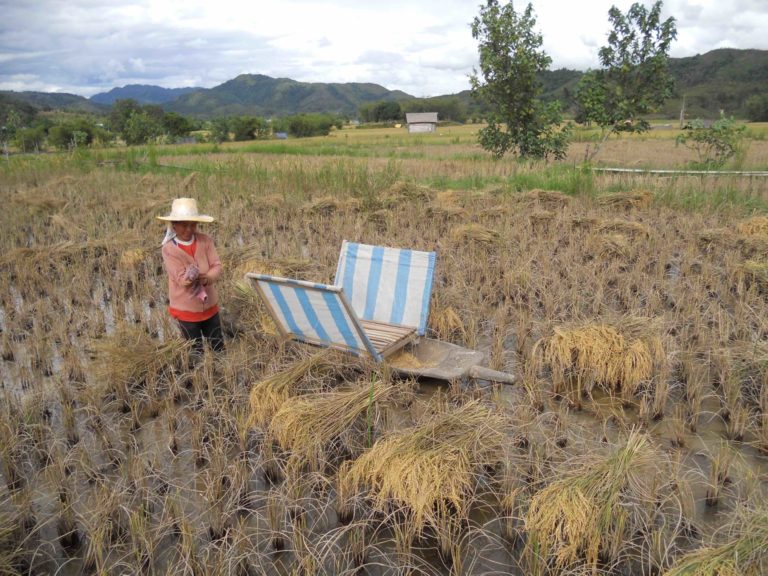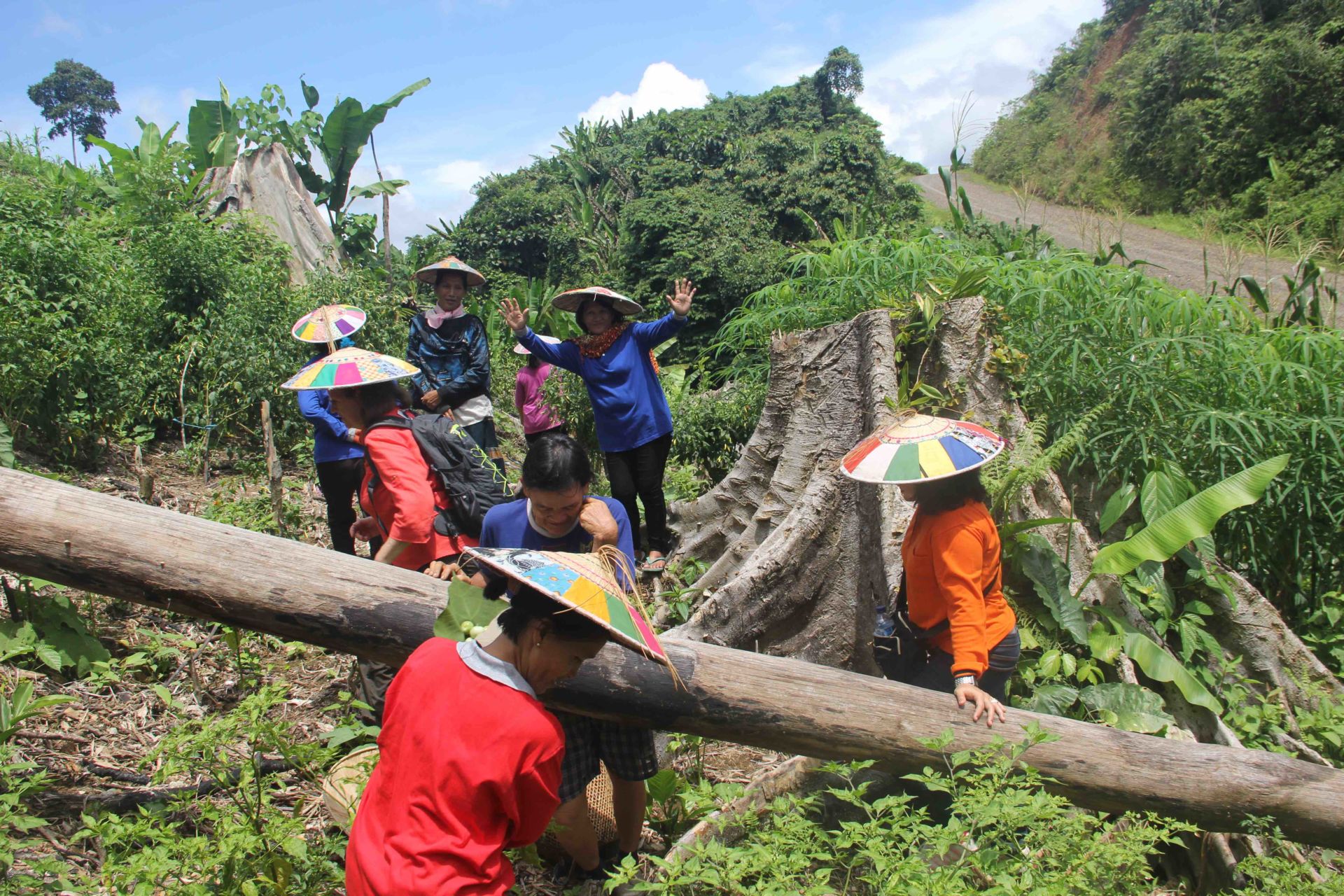With the COVID-19 crisis highlighting the crucial importance of a balanced relation with nature and interdependence of human, animal and environmental health, Cristina Eghenter, Deputy Director, Social Development, WWF-Indonesia, argues that learning from Indigenous Peoples is the best way to repair our broken relationship with nature and secure a healthy future for all.
Broken Relationship
The world today is battling an unprecedented health crisis of a scale unforeseen in recent history. The COVID-19 pandemic has claimed hundreds of thousands of lives, threatened the very existence of the vulnerable communities and has brought world economies to their knees. Giovanni Reyes, an indigenous leader from the Philippines, during a recent conference, described this current crisis as “nature telling us that [it] does not need us. We are not masters of nature, we are guests.”
While there is considerable speculation about the origins of the pandemic, there is no doubt that this crisis is one of our own making. Scientists have been warning for years that the way we eat, consume and produce is pushing the planet to the brink jeopardizing our own survival and that of our future generations. With the risk of pandemics driven in part by deforestation and massive land use change, the current health, humanitarian and economic crisis is yet another manifestation of our dangerously broken relationship with nature.
With the risk of pandemics driven in part by deforestation and massive land use change, the current health, humanitarian and economic crisis is yet another manifestation of our dangerously broken relationship with nature.
As one participant in the recent UN Consultation on Healthy Ecosystems and Human Rights had put it, “the relation[ship] between economics and environment is now corrupt.” The writing is clearly on the wall. We must transition towards an economic model that values nature and people as the foundation of a healthy society and a thriving economy.
Our Solutions Are in Nature
Beyond the immediate challenge of reconstructing lives and economies, the COVID-19 is a rare opportunity to re-imagine and build a new and better world. The theme for this year’s International Day for Biodiversity “Our solutions are in nature” is a rallying call to re-examine our relationship with nature calling the world leaders to build back better. It is a moment for us to reflect on how we can repair our relationship with nature, building resilience, not just in response to COVID-19 but also to the growing and converging crises of climate breakdown and nature loss to deliver a future where emerging infectious diseases are less likely to become a recurring threat to our health and economic prosperity.
In navigating our way out of this current crisis we must set course for a just and inclusive recovery which embraces diversity, sufficiency, reciprocity, solidarity, equity and equality. A responsible, respectful and caring relationship with nature and each other are the key tenets of achieving this just, equitable and sustainable socio-economic model.
Related Articles: Biodiversity Talks: Kickstarting a Paris-style Nature Agreement? | WWF Study Illustrates Dire Need for Action Against Nature Loss
However, as we build back our societies and economies, we need “teachers” who can show us the way. Indigenous people and communities have been living in harmony with nature since time immemorial and could be our guides at this critical time as we look at building back our lives and economies. We can draw some key lessons from the custodians of nature whose traditional knowledge, practices, innovation and social solidarity have enabled them to build resilient communities in their territories.
Good Practices
Holding a holistic view where livelihoods and management of territories of life are integrated, within their cultural and spiritual traditions, Indigenous Peoples, men and women alike, have demonstrated that alternative ways of living and being are possible. Stories from ICCA Consortium of both old and new indigenous practices such as self-isolation and food sovereignty could offer us valuable lessons in tackling today’s crisis and rebuilding a better future together.
In indigenous histories, epidemics are recorded in collective memory as extraordinary disruptive events marking the lives of communities. Their primary response strategy for containing epidemics is very similar to the one adopted by governments the world over today — social distancing. In the interiors of Borneo, for example, traditional longhouses were abandoned in times of epidemic, and community members with deadly and highly infectious diseases were isolated in small settlements downriver from the main village.
Today, in the face of COVID-19, many indigenous communities around the world have adopted similar measures and blocked entry to their territories. Since lockdown and travel restrictions, indigenous leaders and local government authorities in remote areas of Borneo have also revived traditional practices to safeguard food supplies, including foraging for food and traditional medicines from forests to supplement diets, cultivating crops most adapted to circumstances, and strengthening social relations and mutual support mechanisms.

The traditional food systems developed by indigenous people are sustainable, with nature as the cornerstone of food production, enhancing food security, natural diversity, and community resilience. In the Krayan Highlands, for example, the Lundayeh, Lun Bawang, Kelabit dan Sa’Ban Indigenous Peoples have grown rice organically for centuries using traditional practices shaping a mosaic of rice fields, bamboo groves, fruit trees, and forested slopes. This method of growing rice not only feeds the people of the land but also supports the surrounding ecosystems enabling both nature and people to live and thrive in harmonious co-existence. Their methods were recognised by United Nation’s Equator Society, earning them the 2015 Equator Prize, a biennial award which recognizes outstanding community efforts to reduce poverty through the conservation and sustainable use of biodiversity. The Krayan highlands were declared an area for organic and traditional agriculture in 2016 by the indigenous people and the initiative gained formal recognition from the district government in 2019.
These “nature-based” solutions work precisely because they are rooted in traditional knowledge, values and social solidarity, and, where appropriate, with additional support and innovation they can be replicated and scaled in support of wider food security and sovereignty, mitigating the negative impact of existing industrial agricultural systems, a key driver of environmental degradation. Women especially have unique knowledge, skills and experience relating to nature. They play a vital role in managing natural resources by making daily decisions that ensure economic resilience and security of families and communities, educating the next generation, and passing on their traditional knowledge.

Rights and Participation
The UN Development Programme describes the situation as a systemic human development crisis — one likely to deepen inequality and impact poorer countries and vulnerable groups the most, including those already living in poverty or working in the informal economy.
Indigenous Peoples remain one of the most disadvantaged and vulnerable groups in the world, their knowledge threatened by misuse and marginalisation, and their perspective lacking recognition as an equal and valuable “voice” in decision-making fora. Creating a resilient world depends on protecting and restoring the natural systems that allow us all to thrive. But we can only succeed if Indigenous Peoples are able to manage ancestral lands sustainably, championing a new relationship with nature for the benefit of all. Yet while they are the primary custodians of over half of all land on the planet, they currently have secure legal rights to only 10%.
Together as we strive to build a “new” world, our common and ancient traditions and practices can offer inspiration and a sound and stable model for building a future in which we live in harmony with nature.
We can only shape truly equitable and resilient societies and realise the promise of the Sustainable Development Goals, prosperity for all on a healthy planet, if we strengthen indigenous governance and self-determination by securing full recognition of indigenous rights, and ensure meaningful indigenous participation in our recovery. Together as we strive to build a “new” world, our common and ancient traditions and practices can offer inspiration and a sound and stable model for building a future in which we live in harmony with nature.
Editor’s Note: The opinions expressed here by Impakter.com columnists are their own, not those of Impakter.com — In the Featured Photo: Indigenous women going to their gardens. — Featured Photo Credit: ©Komang










